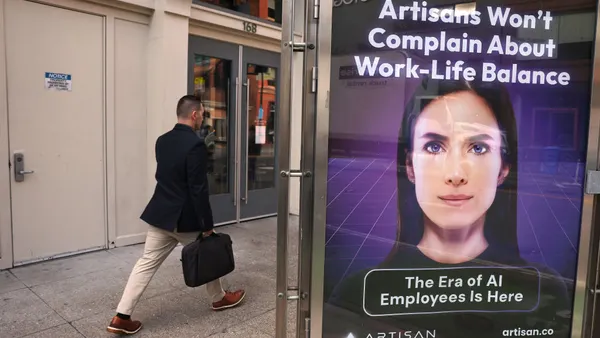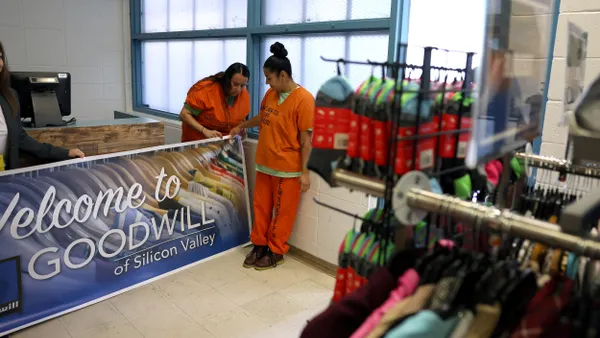Dive Brief:
- Meaningful work topped the list of positive employee experiences in a study by Globoforce’s WorkHuman Research Institute and IBM’s Smarter Workforce Institute. The Employee Experience Index examined the relationship between employee experiences and workplace practices.
- Meaningful work, in which employees understand the value of the work they do and the organization's shared mission, was identified as the single largest contributor to a positive employee experience.
- The report noted other important factors, including empowerment, recognition, feedback, growth and coworker relationships.
Dive Insight:
Meaningful work and empowerment are themes that come up consistently when employees cite the experiences they find the most desirable in the workplace. HR managers can help empower workers by backing their desire for more flexibility and respecting their need for autonomy. Workers that have more control over their work tend to be happier and perform better than those that are micromanaged.
And when it comes to coworker relationships, HR can help by creating shared experiences for employees, which some experts say is the key to building strong teams.
At the end of the day, an organization that wants employees to behave ethically and understand that they're performing meaningful work must exhibit an ethical and transparent culture. HR can set policies aimed at holding the CEO, C-suite leaders and all employees accountable for carrying out the organization's mission with honesty and integrity.










